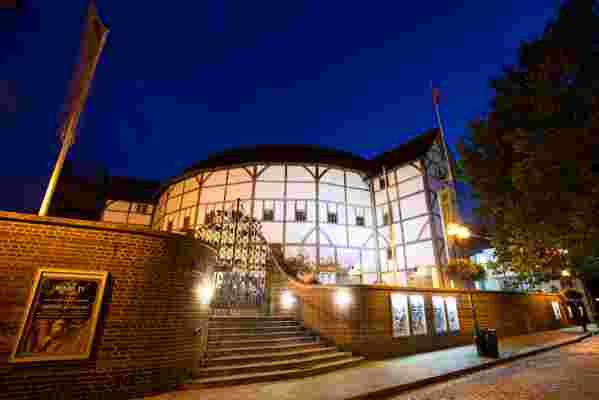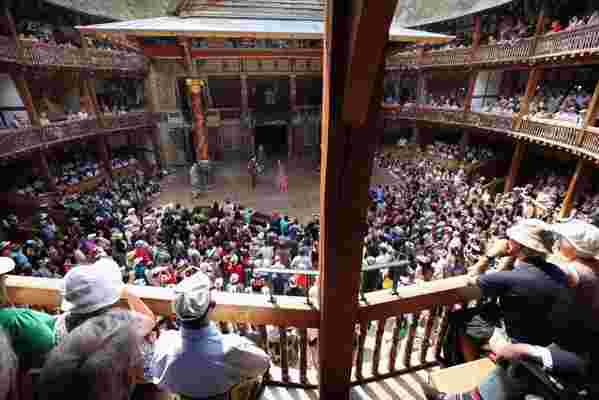During his own lifetime, world-famous playwright William Shakespeare had to contend with various waves of bubonic plague that shut down London’s play houses. More than 400 years after his death, the current pandemic could force the permanent closure of the theater most synonymous with his work. This week, London’s famous Globe theatre has admitted that its future is uncertain. The Shakespeare Globe Trust made an impassioned plea for funding on its website , noting that as a charity that receives “no regular government subsidy, we desperately need your support.”
A letter written by the chair of the House of Commons’ Digital, Culture, Media and Sport Committee spelled out why “world-renowned institutions” like the Globe are at risk of going under. “It is clear from the Government’s plan for emerging from the lockdown that theatres and similar venues are likely to be some of the last to reopen,” Julian Knight, MP, wrote . “Yet the economics and practicalities of live performance mean that when this day comes this sector cannot simply be expected to open its doors and return to normal without adequate support and preparation.”

Shakespeare’s Globe theatre, located on the banks of the river Thames in London, is some 750 feet from the original location.
Built in 1997, Shakespeare’s Globe is a replica of the original Globe Theatre first opened by the famous bard’s theater company in 1599. Some of Shakespeare’s most famous works, including Hamlet, King Lear, Macbeth, and Othello, were written for performance at the Globe before it burned down in 1613 just a few years before his death.
Located about 750 feet from the original site, Shakespeare’s Globe drew from historical records to recreate the original as faithfully as possible. Though it features a few modern adjustments like a roof-based sprinkler system, it boasts the only properly permitted thatched roof in London since the Great Fire of 1666. For the last 23 years, the space has allowed audiences from around the world a chance to see Shakespeare’s plays performed in a space that would have looked familiar to him.

A view from the crowd as they watch a performance of a Shakespearian play. The set up would have been similar to one seen some 400 years ago when the plays were first performed.
But as an entity that functions independently of Arts Council England, Shakespeare’s Globe is ineligible for the 160 million pounds (about $195 million) earmarked for venues facing COVID-19 closures. That’s why CEO Neil Constable tweeted a statement thanking parliament for its support while further reiterating the need for help. “We are proudly a part of the UK’s national identity and cultural landscape,” reads a statement attributed to Constable shared by the Globe’s account. “Our survival as an organization largely depends on help from the Government to get us through this lockdown period.”
With no confirmed timeline for the U.K. to enter its next phase of easing the lockdown, it’s entirely possible that the Globe will depend on generosity rather than ticket sales to make it through 2020 and into 2021. Hopefully a combination of public and private support can help this architectural testament to Shakespeare’s legacy live on.
